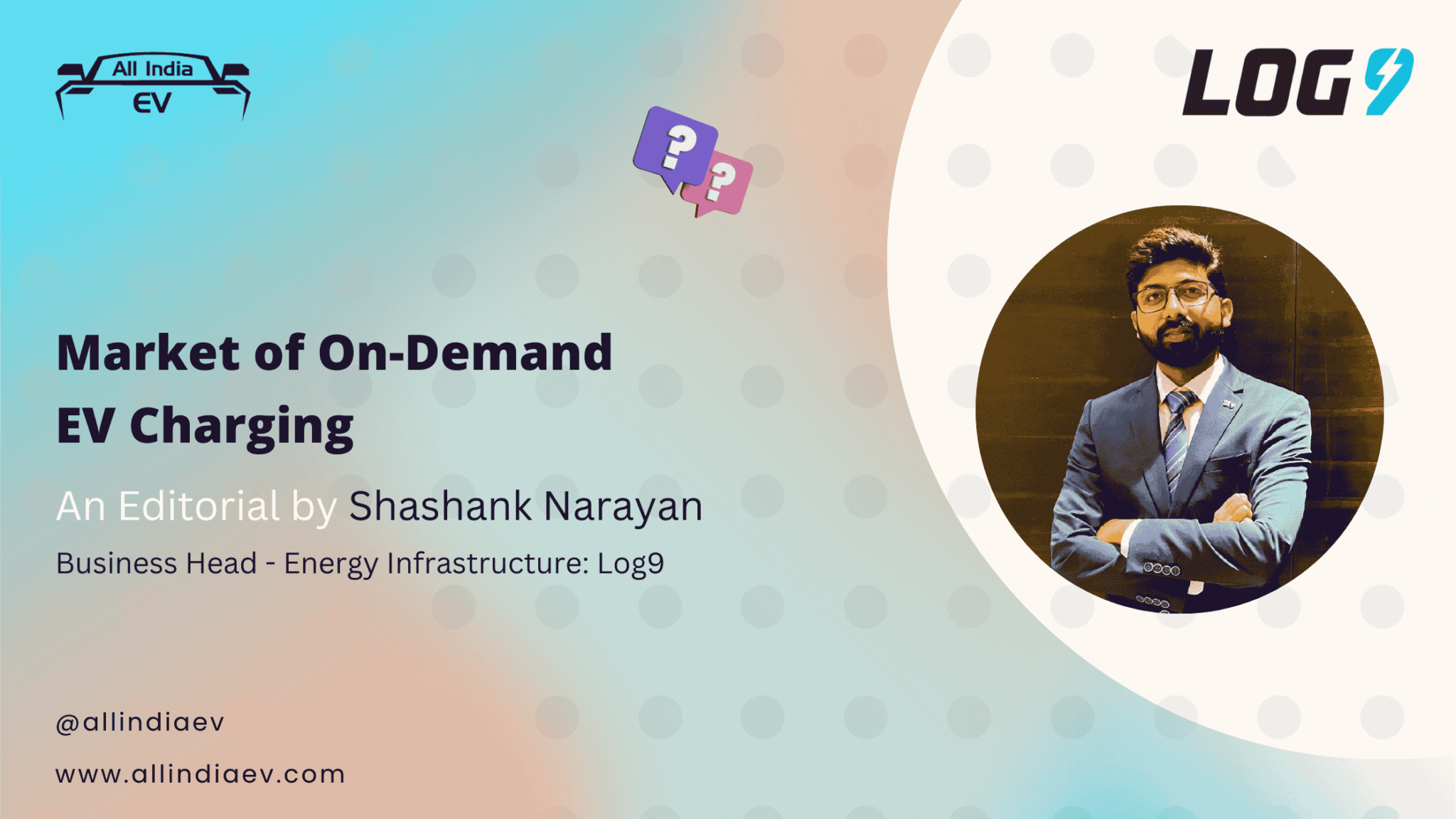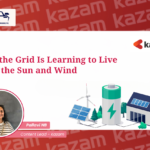
Exploring the market of on-demand ev charging both in India and global, present and demand growth in near future
If we look upon major problems being faced by EV users, it is unavailability of Reliable Charging Infrastructure which guarantee uptime, accessibility, capacity & hygiene maintenance. We have many a EV Charging services companies or Charge point operators (CPO) in India who are trying to solve these common problems to provide seamless & guaranteed charging services to EV Users. CPOs faces many a challenge while developing the Charging Infrastructure which includes, finding a right EVSE (Electric Vehicle Supply Equipment) OEM to maintain the uptime, Real-estate with driving & parking accessibility & Electrical Infrastructure(DISCOM Electricity Connection) with adequate capacity for fast charging.
Principally, EV Charging is a business of energy or electricity services, hence, Distribution companies (DISCOMs) play a major role here in the business of Charging services and requires active participation. Here in India, DISCOMs, are unable to provide adequate electrical infrastructure for setting up of charging station due to its unfavourable policies, tariff uncertainty, lengthy approval process, limited grid capacity and regulatory barriers which narrows down the overall development growth of EV Charging Infrastructure.
Essentially, On-demand EV Charging Infrastructure having following two facets; one will be in terms of planning a Infrastructure demanded by EV users or analysed by CPOs, another will be development of self-powered Mobile Charging equipment integrated with vehicle platform.
Let’s understand the key components for both the approaches to fulfil On-demand EV Charging –
Immovable/Fixed EV Charging Infrastructure
Movable/Mobile or on-demand ev charging Solutions
Immovable/Fixed EV charging infrastructure refers to fixed charging stations that are permanently installed at specific locations such as parking lots, homes, businesses, or public places. These stations provide electric vehicle (EV) owners with consistent access to charging facilities at designated points, often connected to the grid or renewable energy sources and can be accessible using Mobile or web-based applications.
| Level | Power Type | Voltage (V) | Power (kW) | Type of Vehicle | Type of Compatible charger/connector |
| Level 1 | AC | 1p, 240Vac | <=3.6 Kw | 4w ,3w,2w | Type 2 Cordset, Bharat AC-001 |
| Level 2 | AC | 1p/ 3p, 380-400Vac | <=22 kW | 4w,3w,2w | Type 2 wall mounted, Bharat AC001 |
| Level 3 | AC | 1p/ 3p, 380-400Vac | Up to 22 kW | 4w | Type 2 Wall mounted |
| DC | 200-1000Vdc | Up to 500 kW | 4w | Type 2, CHAdeMO, GB/T, CCS2, Bharat DC001 |
Benefits of Immovable Charging Infrastructure:
Reliability: Fixed stations ensure consistent access to charging, reducing range anxiety for EV owners.
Scalability: As the number of EVs increases, immovable infrastructure can be scaled in urban and suburban areas.
Cost-Effective for Frequent Users: For EV owners who regularly commute or travel specific routes, fixed charging stations are often more cost-effective than mobile charging solutions.
Integration with Renewable Energy: Many immovable charging stations are integrated with renewable energy sources like solar or wind, enhancing environmental sustainability.
Challenges with stand alone charging stations:
High Installation Costs: Setting up immovable charging infrastructure requires significant investment in equipment, permits, and sometimes grid upgrades.
Space Requirements: Dedicated space is needed for each charging station, which can be a challenge in densely populated areas.
Limited Flexibility: Unlike on-demand or mobile charging solutions, fixed stations are location-dependent, which may limit their accessibility for all users.
Grid Dependence: Immovable stations rely heavily on the local electricity grid, making them vulnerable to power outages unless they have backup systems like energy storage.
Movable or mobile EV / on-demand charging infrastructure refers to non-stationary charging solutions that can be transported and deployed to charge electric vehicles (EVs) at any location. These charging solutions provide flexibility and convenience, allowing EV owners to charge their vehicles without the need for a fixed charging station. Mobile charging is especially useful in areas where permanent infrastructure is lacking or when an EV is stranded due to low battery.
Benefits of Movable/Mobile Charging Solutions:
Flexibility: Mobile chargers can be deployed anywhere, making them ideal for locations without permanent charging infrastructure or for users who require charging on the go.
Emergency Support: Mobile charging services are invaluable in emergency situations when EVs run out of battery power in remote or hard-to-reach locations.
Temporary Solutions: Mobile charging units can be deployed temporarily in areas with high, seasonal, or event-driven demand without needing permanent infrastructure.
Movable or on-demand EV charging has a variety of use cases across different sectors. One prominent use is in roadside assistance, where mobile charging vans provide immediate help to EV drivers stranded with a dead battery, offering a quick charge to help them reach the nearest charging station. Fleet operators, including companies managing fleets of electric vehicles for delivery services or ride-hailing firms, can benefit greatly from mobile charging units as these allow their vehicles to remain operational without the need for fixed charging infrastructure.
Similarly, large public events such as festivals or sporting events can use mobile charging units to offer temporary charging solutions for electric vehicles in high-traffic areas. Mobile charging is also beneficial in remote or underdeveloped regions where traditional charging infrastructure is not yet available, offering much-needed support to both local residents and travelers.
Globally, there are distinct trends in the adoption of movable or on-demand EV charging infrastructure. In the United States, companies like SparkCharge are pioneering the market by providing app-based services that enable users to request on-demand charging at their location. In Europe, particularly in densely populated urban centers, companies like Chargery in Germany focus on offering convenient mobile charging solutions, helping to reduce range anxiety in areas with limited fixed infrastructure.
Meanwhile, in China, the rapid increase in EV adoption has led to significant investment in mobile charging solutions, especially among fleet operators and logistics companies seeking to keep their vehicles running smoothly.
In India, the market for mobile EV charging is still in its early stages but has great potential. Startups like Log9 have launched mobile charging units to support the fast charging of two- and three-wheeler fleets, with 15 units already in operation. This is particularly important in a country where EV adoption is in its nascent stage, and there are considerable gaps in charging infrastructure.
Mobile charging solutions also hold special relevance for rural areas in India, where establishing fixed infrastructure can be challenging. Furthermore, urban delivery and transport fleets in cities like Delhi, Bengaluru, and other metro areas are expected to drive demand for mobile charging services as these fleets expand.










